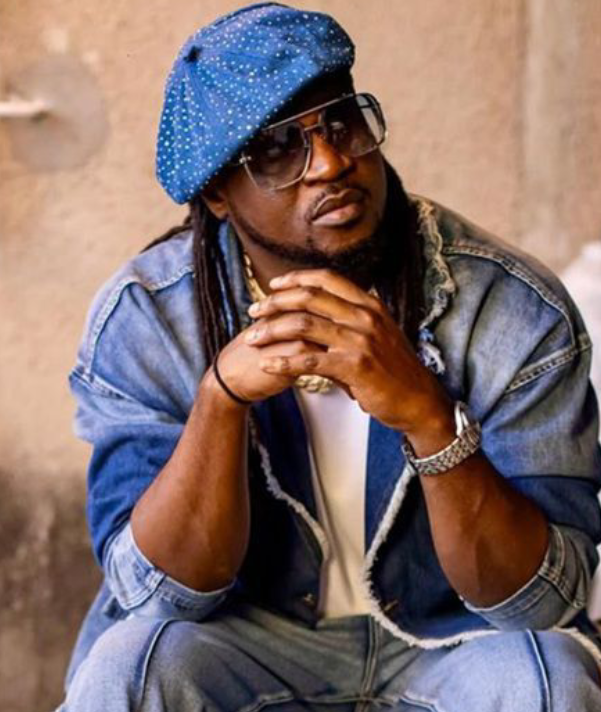
“Everything Na Comparison” — Paul Okoye Blasts Pressure-Driven Generation in Viral Rant

Nigerian singer Paul Okoye, popularly known as Rudeboy, has stirred a fresh wave of reactions online after sharing his unfiltered observation about the younger generation and their obsession with comparison, validation, and unnecessary competition. The veteran music star, one half of the legendary P-Square duo, took to social media to express frustration at what he described as a troubling mindset among today’s youths, saying that almost everything they do now revolves around measuring themselves against others rather than living their own authentic lives. In his words, “Aswear dis generation na m*t people full am! Haba!! Everything na comparison, class, level, maturity, bla bla bla… and na dem go still listen to this poor mentality psychos, then come go put themselves under pressure. Like wtf!!” The post, written in his characteristic blunt and raw tone, quickly went viral, sparking mixed reactions across social media platforms. While many fans applauded him for speaking truth to a disturbing reality, others accused him of sounding judgmental and disconnected from the struggles of the younger generation.
Paul’s words cut deep into a societal issue that has grown even more glaring with the rise of social media. This is a time when Instagram feeds, TikTok trends, and Twitter hot takes have become the new measurement yardsticks for success, happiness, and even self-worth. Many people, especially the younger crowd, often find themselves scrolling endlessly through curated lifestyles of others, comparing their own behind-the-scenes struggles with someone else’s highlight reel. The result, as Paul Okoye pointed out, is a culture of pressure, unrealistic expectations, and unnecessary competition that does nothing but breed frustration and discontent. The singer’s statement reflects a broader conversation about how this constant need to outshine or measure up has created a fragile generation that seems to thrive less on individuality and more on validation from strangers online.
Coming from a figure like Paul Okoye, who has seen the highs and lows of fame, fortune, and public scrutiny, his observation holds weight. For decades, he and his twin brother Peter Okoye have been in the spotlight, celebrated and criticized in equal measure, and it is perhaps this long journey in the public eye that makes his words resonate. He knows firsthand how toxic comparison can be. Within the entertainment industry itself, artists are constantly being pitched against each other — who has more hits, who drives the bigger car, who sells out the bigger venue, who lives in the more luxurious mansion. That same mentality, Paul argues, has trickled down into everyday life, where young people now define themselves not by their values or their true passions but by how much they can keep up with the noise of the crowd.
What struck many observers about his rant was not just the directness but the raw frustration that oozed through his words. For Paul, it seems almost ridiculous that people would allow themselves to be weighed down by what he calls “poor mentality psychos” — faceless voices and false standards set by a society obsessed with appearances. His message was clear: anyone who continues to measure their growth, class, or maturity based on someone else’s yardstick is only walking into a self-made prison of pressure. And in a world already filled with economic hardship, job insecurity, and emotional battles, the last thing a person should be doing is making life harder for themselves through comparison.
The conversation his comments sparked goes beyond just music fans. Across different demographics, people began to reflect on how much comparison has silently taken over their lives. For some, it shows up in the form of career envy — watching colleagues secure promotions or land jobs while they are stuck in the same position. For others, it manifests in relationship pressure, where people feel compelled to display “Instagram-worthy” romances or even rush into marriages just to prove that they are not being left behind. Then there is the financial comparison, perhaps the most dangerous of all, where young people measure their worth by the type of car they drive, the neighborhood they live in, or the vacations they can afford to post online. Paul Okoye’s words pulled the veil back on these silent struggles, reminding people that behind many curated lifestyles lies a mountain of debts, hidden tears, and battles no one talks about.
Interestingly, his rant also came at a time when mental health conversations are becoming louder in Nigeria. More young people are opening up about depression, anxiety, and the crippling weight of societal pressure. Experts have repeatedly warned that comparison is one of the biggest triggers of low self-esteem and dissatisfaction. In fact, psychologists describe it as “the thief of joy,” because it robs people of the ability to be content with their own progress. Paul Okoye’s post therefore resonates not just as a random celebrity outburst but as an intervention that points to a cultural disease spreading among the youth. His frustration mirrors that of many older Nigerians who feel that this generation is too distracted by unnecessary competitions and has lost touch with the values of patience, hard work, and gratitude.
But while many praised him for speaking the truth, not everyone agreed with his delivery. Critics argued that labeling an entire generation as “m*t people” was unnecessarily harsh and dismissive of genuine struggles. Some felt that rather than blaming the youth, celebrities like Paul should focus more on offering mentorship, creating opportunities, and showing practical ways to break free from the trap of comparison. Others suggested that it is easy for someone already successful and wealthy to condemn comparison, because they are not the ones facing the day-to-day grind of survival, job hunting, or navigating a tough economy. This tension shows the complexity of the issue — while the culture of comparison is undeniably toxic, the root causes, from poverty to social inequality, cannot be ignored.
Still, the overwhelming takeaway from Paul Okoye’s message was a call to self-awareness. It was a reminder that no matter how loud the world gets, each person must decide whether they will live for themselves or live for the applause of others. The pressure of constantly measuring up to someone else’s standard can be suffocating, but as Paul suggested, it is ultimately a choice. One can choose to scroll past the noise, to shut out the voices of “poor mentality psychos,” and to define success on their own terms. At a time when social media has made it nearly impossible to escape comparison, his rant may be the wake-up call many needed — a blunt reminder that life is not a competition and that peace of mind is far more valuable than public validation.
Paul Okoye’s post will not be the last celebrity commentary on the struggles of this generation, but it has certainly left a mark. It has opened up another chapter in the ongoing debate about how young people navigate the age of digital excess, peer pressure, and false appearances. Whether one agrees with his delivery or not, the essence of his message cannot be dismissed. In a world where “everything na comparison,” perhaps the biggest rebellion is simply to step out of the race, embrace one’s own journey, and find joy in authenticity rather than approval.


